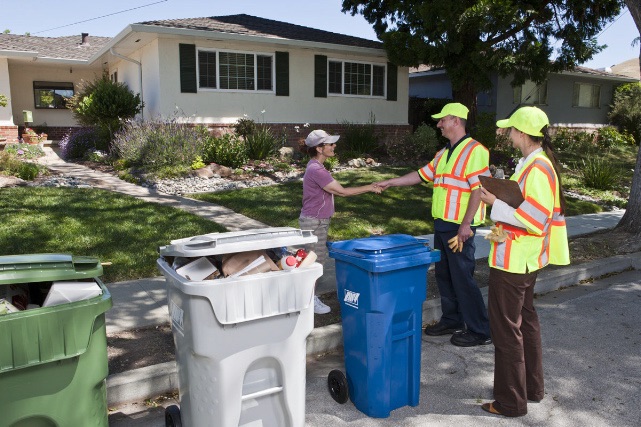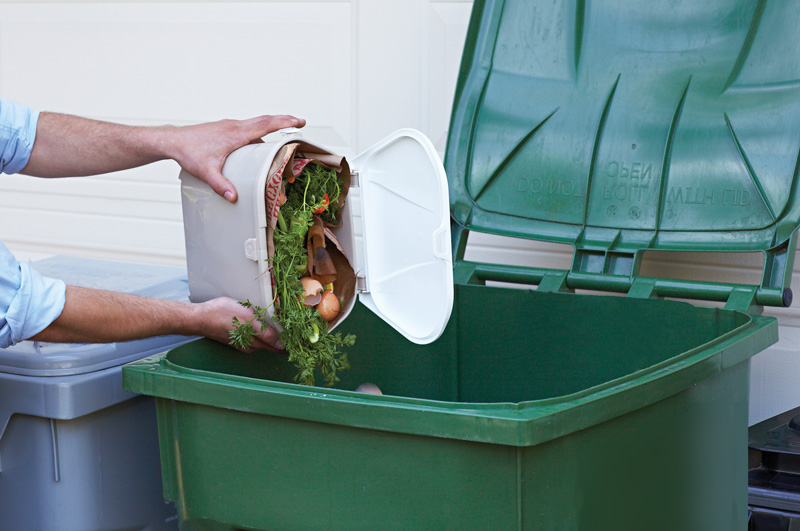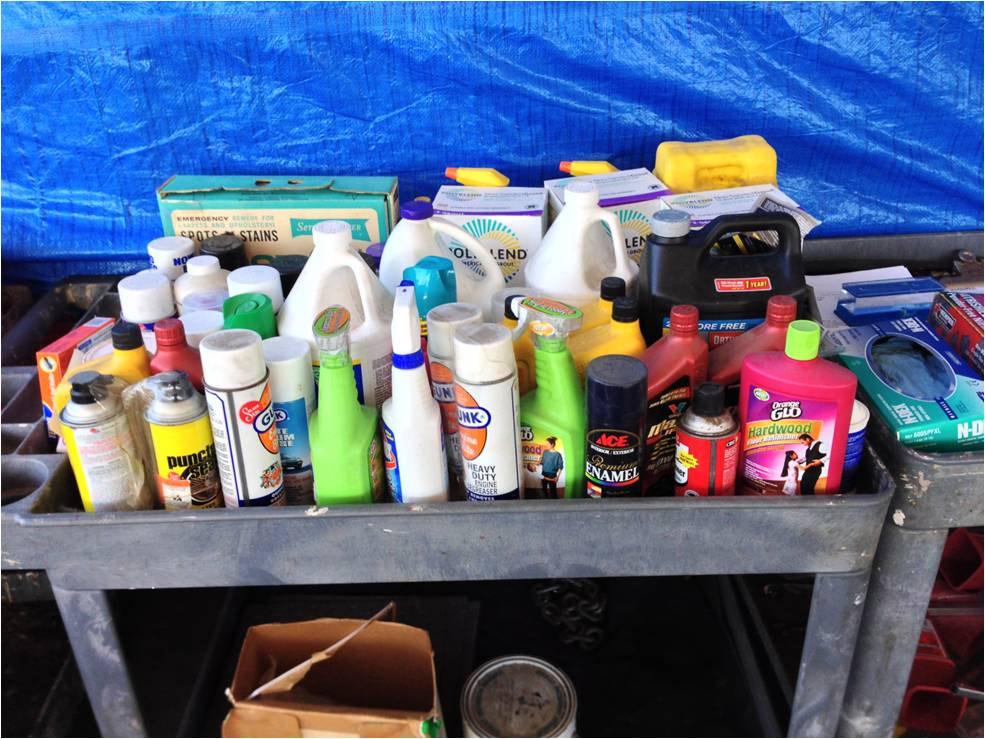Recycle and Compost

Find out what goes in your curbside bins
- Items going in the recycling should be empty, clean and dry, and free of food and liquids.
- Make sure you only put what's allowed in the recycling and green carts. Visit our RE:Source guide to search for what is acceptable in your city's curbside program.

Put food scraps, food-soiled paper and plant trimmings in the green bin
- A new law requires all residents and businesses to properly sort organics into the green bin.
- No plastic, glass or metal should ever go in the green bin.
- Find out more about recycling food scraps.

Take household hazardous waste and electronics to local collection facilities
- Many common household products, such as used motor oil, leftover paint, pesticides and fertilizer products, and electronics are considered hazardous waste and should never be disposed of in the garbage.
- Drop off your household hazardous and electronic waste for free at four locations in Alameda County.
- Explore the RE:Source guide to find out where to get rid of old medicine, and unwanted computers, phones, TVs, DVD players, gaming equipment and other e-waste.
Need More Help?
- Help your friends and family understand what goes in each bin, create a custom recycling sign.
- Email us at info@stopwaste.org.